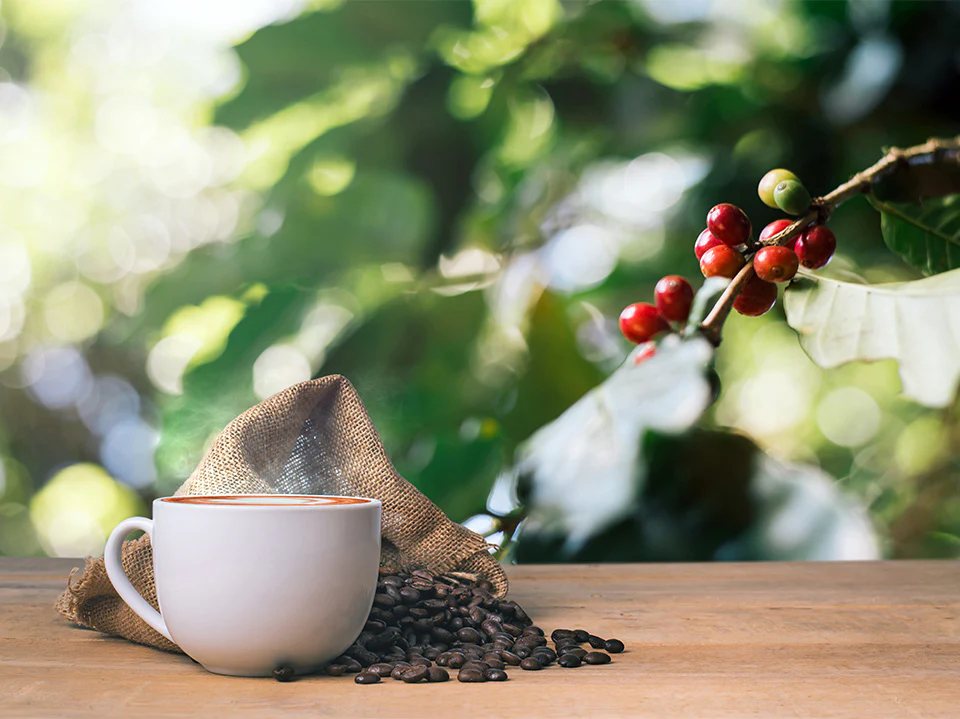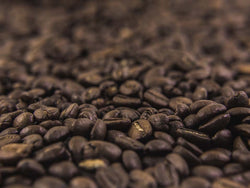
Arabica Coffee v Robusta Coffee: What's the Difference?
Key Takeaways
- Arabica coffee is known for its smooth, sweet flavour with balanced acidity, making it the preferred choice for specialty coffee lovers, while Robusta coffee is bolder, more bitter, and has higher caffeine content, ideal for those seeking a stronger coffee experience.
- Arabica thrives at higher altitudes and in cooler climates, requiring more care in cultivation, whereas Robusta is hardier, growing in hotter, lower-altitude regions and is often used in espresso blends and instant coffee.
- Arabica is considered higher quality due to its nuanced flavours, whereas Robusta offers greater affordability and is often used for its boldness, making it a popular choice for commercial coffee products.
What's the Difference?
Coffee lovers across the world often debate the merits of Arabica coffee versus Robusta coffee, each known for its distinct flavour profile and growing conditions. Whether you're a seasoned coffee connoisseur or a casual drinker, understanding the differences between these two varieties can greatly enhance your appreciation of coffee. In this guide, we’ll explore the origins, flavour profiles, quality, and uses of Arabica coffee and Robusta coffee, shedding light on why each offers a unique experience.
Origins and Cultivation
Arabica Coffee
Arabica coffee, Coffea arabica, is widely regarded as the world's favourite coffee bean, comprising 60-70% of global coffee production. Arabica’s roots trace back to Ethiopia, where it was first discovered over a thousand years ago. The coffee plant thrives at higher altitudes, typically between 600 and 2000 metres above sea level, in cooler climates with consistent rainfall. Countries like Brazil, Colombia, and Kenya are famous for producing some of the finest Arabica beans.
Arabica coffee is considered more delicate to cultivate compared to Robusta, as it requires more care and specific environmental conditions. However, these stringent growing requirements contribute to its smoother taste and refined characteristics, which are prized in the world of specialty coffee.
Robusta Coffee
Robusta coffee, derived from Coffea canephora, is native to sub-Saharan Africa and is primarily grown in regions of Vietnam, Brazil, and parts of West Africa. Unlike Arabica, Robusta thrives at lower altitudes, often in hot, humid climates, making it more resilient to pests and diseases. Robusta beans are smaller and rounder than Arabica beans, with a hardier structure that allows them to withstand harsher growing conditions.
Vietnam is the world’s largest producer of Robusta, accounting for around 40% of global production. Robusta is commonly used in instant coffee and espresso blends due to its bold flavour and higher caffeine content.
Flavour Profiles
Arabica Coffee
Arabica coffee is prized for its smooth, sweet flavour, characterised by a balanced acidity and a range of complex flavours, from fruity and floral notes to hints of chocolate and nuts. The higher the quality, the more nuanced the flavour profile. For instance, Colombian Arabica is known for its bright acidity and fruity undertones, while Kenyan Arabica has a deeper berry-like flavour. The growing conditions, especially the altitude, play a critical role in shaping Arabica’s refined flavour.
Arabica beans are generally less bitter than Robusta, and their natural sweetness makes them ideal for light to medium roasts, preserving their flavour complexities. Arabica’s fruity and floral aromas make it the coffee of choice for those who enjoy a mild, smooth cup of coffee with a clean finish.
Robusta Coffee
Robusta coffee, on the other hand, is known for its bold, earthy flavour profile, with bitter and woody undertones. The taste can be described as stronger and more robust than Arabica, often with hints of nutty or chocolate flavours. Robusta beans are favoured for their higher oil content, which contributes to a thicker body and a richer texture when brewed.
With twice the caffeine content of Arabica, Robusta’s strong taste is complemented by a more pronounced bitterness, which some coffee drinkers find appealing in espresso blends. The robust aroma of Robusta coffee is often described as more earthy compared to the floral scents of Arabica.

Quality and Price
Arabica Coffee Quality
Arabica beans are considered of higher quality due to their smooth taste, delicate acidity, and complex flavour profile. Because of the careful cultivation and processing methods required, Arabica coffee is often more expensive than Robusta. This makes it the preferred choice in specialty coffee markets and for consumers seeking a more refined, nuanced cup of coffee.
Many Arabica beans are also produced under sustainable and ethical farming practices, with certifications like Fair Trade and organic being increasingly common. Arabica’s popularity in the third-wave coffee movement has led to an emphasis on single-origin beans and artisanal roasting techniques, providing a unique and bespoke coffee experience.
Robusta Coffee Quality
Although Robusta coffee is often viewed as lower quality compared to Arabica, it still offers excellent value for money. The higher yield and natural resistance to pests make Robusta a more cost-effective option for mass-market products, such as instant coffee and commercial espresso blends. Robusta beans are often used in blends to add body, strength, and crema to espresso.
Robusta beans contain less sugar than Arabica beans, which contributes to their more bitter taste. Despite its lower overall quality, Robusta is increasingly recognised for its boldness, which makes it a favoured choice for coffee lovers who prefer a stronger and more intense coffee.
Health Benefits of Arabica vs Robusta Coffee
Both Arabica and Robusta coffee offer distinct health benefits due to their high antioxidant content, which helps protect cells from damage. However, the higher caffeine content in Robusta has additional benefits such as improved mental alertness and focus, making it a good option for those who need a stronger boost.
Arabica’s lower caffeine content may make it easier on the stomach for some people, offering a gentler experience without the jitteriness that can sometimes come from Robusta’s higher caffeine level.
Where to Buy Arabica and Robusta Coffee
At Primo Caffe, we offer a wide selection of Arabica coffee and Robusta coffee options to suit every taste preference. Our Arabica collection includes premium, single-origin beans that deliver a rich, complex flavour. For those who prefer a stronger coffee, our Robusta collection offers bold, full-bodied beans perfect for espresso and other blends.
Explore our Arabica Coffee Collection and Robusta Coffee Collection to find the perfect beans for your brewing preferences.
Conclusion: Which Coffee is Right for You?
Both Arabica and Robusta coffee beans offer unique qualities that cater to different preferences. If you’re after a smooth, fruity, and floral cup with a balanced acidity, Arabica is the ideal choice. On the other hand, if you prefer a stronger, more bitter coffee with higher caffeine content, Robusta provides the bold experience you’re looking for.
Ultimately, your choice between Arabica and Robusta comes down to your personal taste preferences and how you enjoy your coffee. Why not explore both? Visit Primo Caffe to discover the best Arabica and Robusta coffee beans for your morning brew.
---
About the Author
Nicolas Di Stefano is a third-generation Master Roaster and Director of Primo Caffe. With decades of family tradition behind him, Nicolas combines time-honoured Italian roasting techniques with a passion for quality, delivering delicious coffee that Australians expect.

